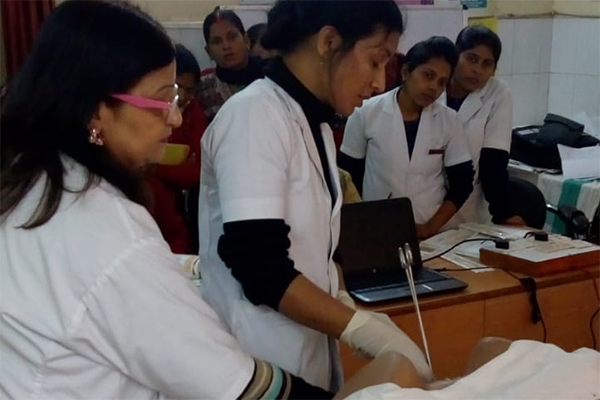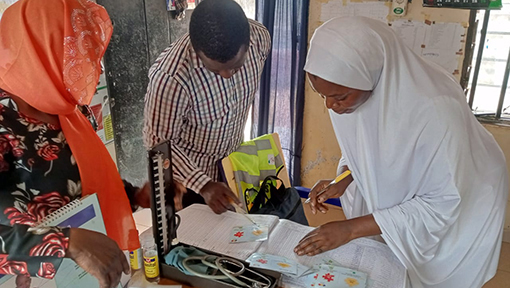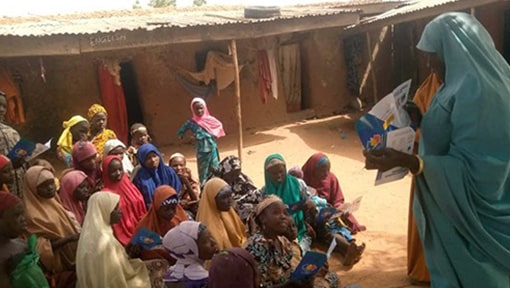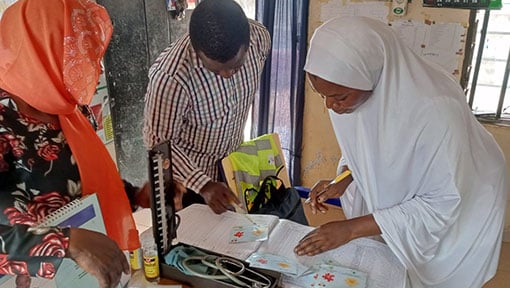TCIHC Advocacy Leads to IUCD Provider Training in Uttar Pradesh UPHCs
by The TCIHC Team | Oct. 22, 2018
An IUCD training demonstration.
Contributors: Manish Saxena, Deepti Mathur and George Philip
When The Challenge Initiative for Healthy Cities (TCIHC) embarked on a journey to scale up evidence-based family planning approaches in poor urban areas, it looked to practices that yielded results in the past. Although each practice identified had its own unique strength, the fixed day static (FDS) services approach had the maximum potential to make an impact since it could rapidly ensure access and availability to quality family planning services.
FDS works when a facility can ensure quality service provision, demand exists for services by the community, and systems are in places for reporting and referrals. FDS was chosen to provide family planning services at urban primary health centres (UPHCs) but the facilities required trained service providers to insert intrauterine contraceptive devices (IUCDs).
TCIHC successfully advocated for an effort to leverage the services of a government-contracted agency in Firozabad – the Hindustan Latex Family Planning Promotion Trust (HLFPPT) – to train providers in IUCD insertion. This training was specifically for providers working in urban areas. The Chief Medical Officer (CMO) of Firozabad was convinced to allow this focus on urban areas by data that showed a lack of trained urban healthcare providers. Firozabad was then able to scale up FDS with IUCDs across all its urban health facilities, including UPHCs.
In the meantime, during rapid assessments of other TCIHC cities, the TCIHC team learned in March 2018 that the HLFPPT’s contract would end in June 2018. Thus, the window of opportunity to get service providers trained was closing in three short months. After TCIHC did a quick assessment of training needs, the team convinced the CMO to allow the health providers – mainly staff nurses, auxiliary nurse midwives (ANM) and Anganwadi Workers (AWW) – to attend the trainings conducted by HLFPPT.
In addition, TCIHC advocated at the state level with the family planning division to extend HLFPPT’s training contract. The family planning division agreed to extend the contract and HLFPPT was able to provide special training sessions for providers at UPHCs. This swift action resulted in 608 providers trained from 17 cities of Uttar Pradesh (UP), including 248 ANMs, 48 female health volunteers and 312 staff nurses.
TCIHC advocacy with the CMO also led to one-day refresher training for 221 non-performing trained service providers from nine cities. Now, 149 facilities in UP have at least one trained provider.
Varanasi went a step further and involved the medical team involved in FDS to be part of the trainings to provide real-life examples and solutions based on their previous experience of observing FDS.






